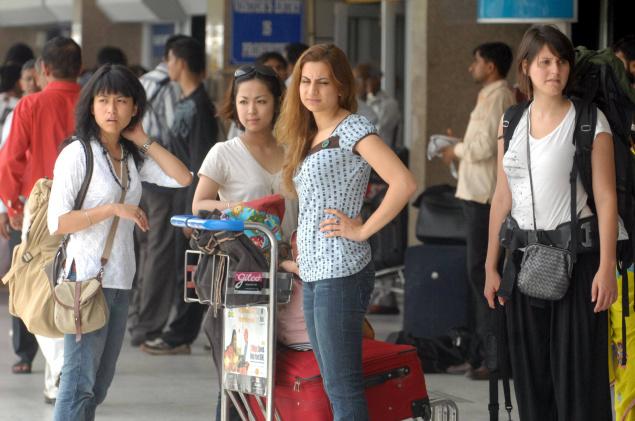
New Delhi, December 4: The government has eased restrictions on tourist visas which had mandated a two-month gap between consecutive visits by foreign nationals.
However, nationals of Afghanistan, China, Iran, Pakistan, Iraq, Sudan, Bangladesh, foreigners of Pakistani and Bangladeshi origin and "stateless persons" will continue to come under the 60-day gap rule. The move is likely to breathe fresh life into the tourism industry and comes just ahead of the peak tourist season. India's share of international tourist arrivals in 2011 was a mere 0.64%.
Fall in tourist inflow led to govt rethink
The tourist visa restriction, which was relaxed on Monday, was introduced in November 2009 in the aftermath of the Mumbai terror attacks when it was found that Pakistani-American David Coleman Headley had succeeded in breaching security norms to visit India several times over a period of 3-4 years.
A decision to review the visa restrictions was taken by the Prime Minister's Office (PMO) in January 2012 after concerns were raised by the tourism ministry that the negative perception following the move had affected flow of tourists to India.
The PMO had asked the ministries of home and external affairs to review the restrictions, including the possibility of bringing in more countries under the visa-on-arrival scheme and improving conditions at major airports.
The order dated November 23 issued by the ministry of home affairs said, "The provision relating to the two-month gap between two visits of a foreign national to India on a tourist visa has been reviewed by the government. It has now been decided... to lift the restriction of two-month gap on re-entry of foreign nationals coming to India.''
According to latest data, foreign tourist arrivals this year till October showed a marginal increase of 6.2% compared to last year. Tourist arrivals till October were 52.19 lakh.
Foreign exchange earnings from January 2012 to October 2012 were Rs 74,215 crore with a growth of 22.1% over last year when earnings were Rs 60,780 crore. Industry watchers are hoping that lifting of the 60-day restriction will encourage foreign tourists to visit India and use it as a hub while visiting southeast Asia and neighbouring countries.





Comments
Add new comment